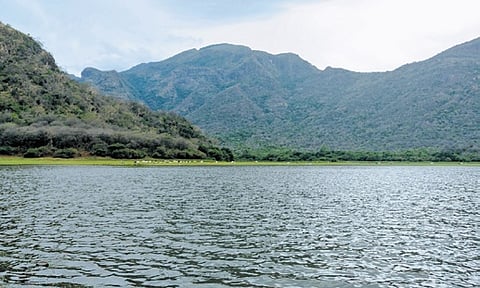

VIRUDHUNAGAR: After old reels of the pristine scenic beauty of Pilvakkal Periyar Dam near Koomapatti went viral in social media last week, crowds from across the state have started flocking to the area. But, many were disappointed to find it closed.
They later learnt the dam had been closed since the Covid-19 lockdown. But TNIE visit to the village highlights that failure to act swiftly to reopen the once-thriving dam post-lockdown has left hundreds of vendors, auto drivers, and home-based food makers battling for survival for nearly five years and their livelihoods pushed to the brink long before social media brought the place back into the spotlight.
Official sources said that following the Covid-19 lockdown, the absence of public activity in the area led to increased wildlife movement, including bears venturing into the dam areas. As a result, the dam has remained closed to visitors for safety reasons.
Last year, a proposal to renovate an adjoining park and provide safety to the visitors was sent to the state government, and at present, it is in the final stage of approval, officials said.
Speaking to TNIE, A Thangapandi (29), whose viral video brought attention to the site, said that tourism activities at the dam have been completely stopped and the adjoining park has fallen into disrepair. He added that villagers have repeatedly petitioned officials over the years, but no work has commenced despite the state government having allocated Rs 10 crore for it.
Meanwhile, autorickshaw drivers in Koomapatti said their daily trips between the village and the dam have dropped sharply since the dam closure.
“Earlier, the village bus stand was always busy with tourists hiring autos. Now, we only get local passengers,” said A Pandi (39), who has been driving an auto for 15 years.
Several residents pointed out that many small restaurants in the village were forced to shut after Covid. Paal Paandi (45), living here for more than 40 years and who runs a small shop, said when the dam was open, he used to sell goods worth Rs 25,000 every week. “Now, after tourists were banned, even making a sale of Rs 5,000 has become a big task,” he added.